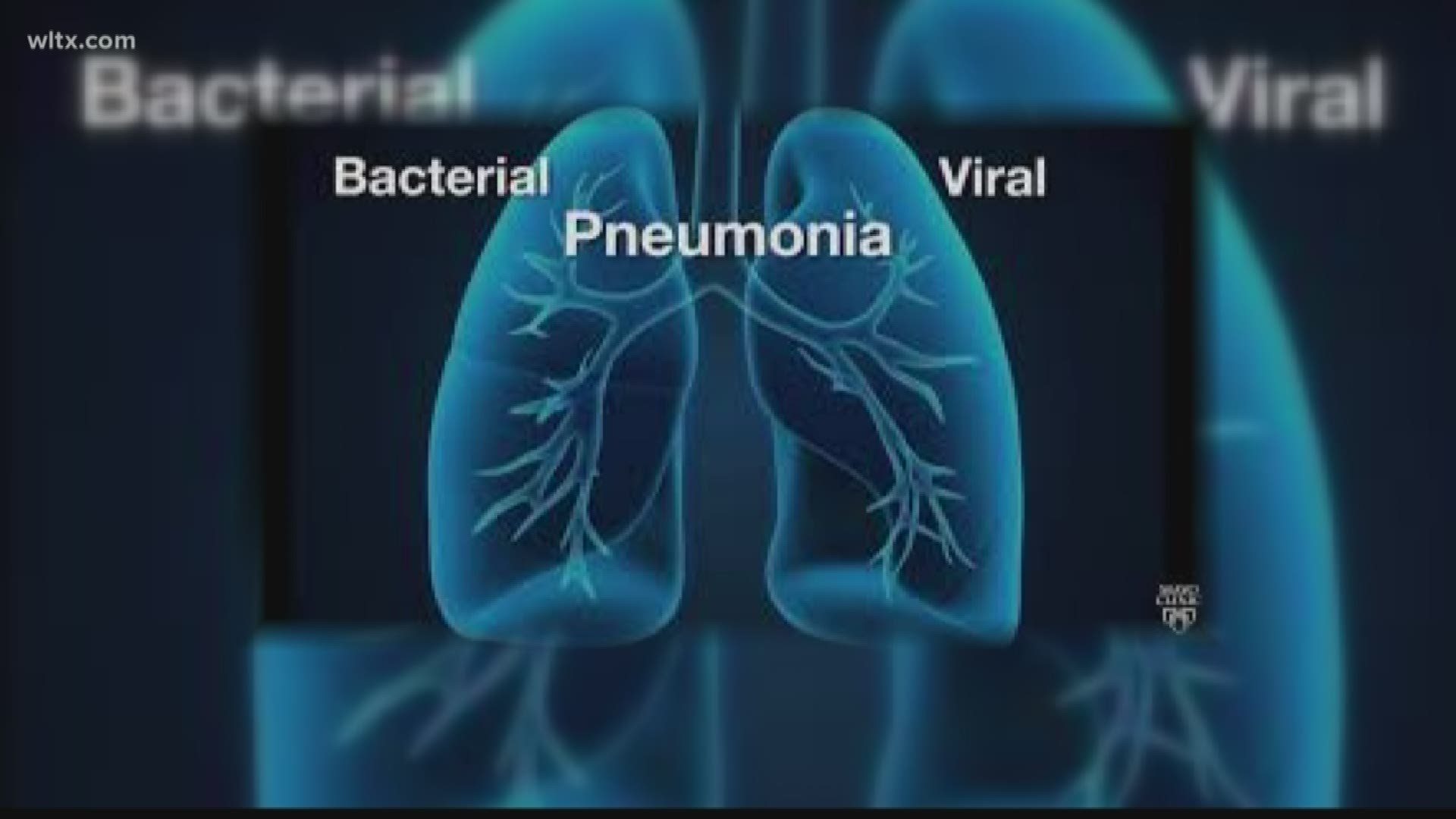COLUMBIA, S.C. — Everyone is at risk for the flu. The flu is different than the common cold. It can affect the body suddenly and cases can range from mild to severe. While most people recover within a few weeks, some people can develop complications.
The flu virus affects your entire body. Your body shifts all its defenses to fighting it off. This leaves you vulnerable to other germs and ways to get sick. Pneumonia is one of these ways to get sick.
The Centers for Disease Control and Prevention statistics say it affects thousands of people nationally and millions of people worldwide and is the number one cause of death in children younger than five years old. It can also be serious and deadly for people with chronic conditions and weak immune systems such as heart disease, diabetes, COPD, asthma or cystic fibrosis.
Smoking and excessive use of alcohol or drugs can increase the risk of getting pneumonia or more life-threatening cases of pneumonia. If people have regular exposure to toxic chemicals, pollutants, or secondhand smoke, they may be more at risk of pneumonia, including more life-threatening cases.
How does flu develop from pneumonia?
Flu never actually turns into pneumonia, but weakens you leaving your lungs vulnerable. In turn, pneumonia attacks the lungs, making it difficult to breathe and blocking oxygen from getting to the body, which can be deadly.
Pneumonia, can also be caused by other viruses, bacteria and fungi which can be spread through coughing, sneezing or close contact with people who have the infection.
How is pneumonia treated?
It’s generally mild and can be treated with antibiotics or antiviral medication, depending on the type of pneumonia you contract.
Health experts recommend people to see a doctor immediately if they have difficulty breathing, chest pain, blueness in the lips or fingernails, cough with phlegm that is not improving or a high fever.
How is pneumonia prevented?
With all of this in mind, there are a few steps you can take to make sure your cold or flu does not take a turn for the worse.
First, get your annual flu vaccine. It can help keep the immune system strong and protect against pneumonia.
Second, keep household surfaces disinfected and clean and Wash your hands frequently, especially after blowing your nose, going to the bathroom, diapering, and before eating or preparing foods. That can stop most colds, flu, pneumonia and respiratory causing germs.
Third, there are two different pneumonia vaccines available. The CDC recommends the vaccination for all children younger than two years old, people with certain medical conditions , all adults 65 years or older and anyone who smokes cigarettes.
Finally There are several other vaccines that can prevent infections by bacteria and viruses that may lead to pneumonia, including pertussis (whooping cough), chicken pox and measles.
Flu season is here, The American Lung association recommends talking to your healthcare provider about which vaccines are best for you and how often you need to get them. Maintaining a healthy diet, lifestyle and sleep habits can also help boost the immune system and prevent pneumonia.
For more information

